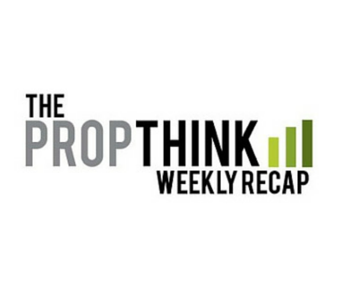This week was jam-packed with market-moving events in biotech, punctuated on Thursday afternoon with an accounting scandal of epic proportions at Salix Pharmaceuticals (SLXP), which makes up almost 2% of the iShares Nasdaq Biotechnology ETF (IBB). The gastrointestinal-centric pharma company has committed one of the more egregious channel stuffing scenarios we’ve seen. For some of its leading products, the company has nine months of product in distribution networks: bizarre given an industry standard in the 8-12 week range depending on the asset & demand. The company insists that this was an unintentional, accounting-driven occurrence but an internal audit is just beginning. In other words, they – and investors – don’t know what to make of it. We’re taking the cautious view: where there’s one roach, there’s usually a whole lot more. SLXP fell 33% with the news.
Abstracts from the American Society of Hematology’s (ASH) annual meeting dropped on Thursday morning. This, and the release of late-breaking abstracts on November 17, are much-watched events for healthcare investors given the myriad new oncology data that emerge. In the wee hours of Thursday morning, we sent out an ASH 2014 preview highlighting the top small and mid-cap healthcare stocks to watch when the abstracts became available mid-morning. The primer (hat-tip to PropThink newcomer Zack Fink) still has relevancy ahead of the meeting itself in early December.
Read our FREE ASH 2014 preview by clicking here
One non-oncology name we were watching closely with the abstract release (following our intro for PropThink Premium readers two weeks ago) was bluebird bio (BLUE). At ASH, Bluebird will have an oral presentation on initial LentiGlobin results from the NORTHSTAR study as well as a poster with updated data from the two patients enrolled in HGB-205. Both of these abstracts included data through July, with longer follow-up in more patients receiving Lentiglobin to be presented at the meeting. Subjects who received the candidate earlier this year, and for which investors had already seen impressive results, are experiencing durable and increasing ßA-T87Q-globin expression, enabling them to remain transfusion independent. A third patient is reacting favorably to the product, though transfusion-independence had not been achieved three months in. There were some interesting nuances in the data with regards to dosing, but Lentiglobin’s efficacy is in line with our expectations. We’ll have a more comprehensive update on bluebird for PT’s members in the next few weeks as ASH approaches. You can revisit our initial report on BLUE, here.
On Monday PropThink Premium subscribers received our latest idea in healthcare, a name that’s flown under the radar for many investors despite having IPO’d just this spring. GlobeImmune, Inc. (GBIM) develops targeted treatments for oncology and infectious diseases based on the company’s proprietary Tarmogen platform. Essentially therapeutic vaccines, Tarmogens are designed to activate the immune system to target particular proteins in infected/malignant cells.
The company’s been around for a while (private), but some interesting advancements in the last five years informed our interest in trading this illiquid stock in the next few months. GlobeImmune’s lead infectious disease candidate, GS-4774, is partnered with Gilead Sciences (GILD) for the treatment of hepatitis B. Two phase 2 proof of concept studies are ongoing and one will readout in the first half of 2015, testing GS-4774 combined with standard of care HBV regimens. Gilead is the leading antiviral company globally, and hepatitis B is the next big frontier (GILD has already conquered hepatitis C with the blockbusters Sovaldi/Harvoni). GBIM traded near its cash value and at 52-week lows at the beginning of this week (its already up 20% in five days), creating an asymmetrical risk/reward in our view, ahead of key HBV data in early 2015. Read the report, which we published in collaboration with Dr. Paul Nunzio De Santis, by clicking here. And get all of our exclusive trades sent straight to your inbox, by signing up for PropThink Premium.
Also at the end of the week, data from the FLINT trial of Intercept Therapeutics’ (ICPT) obeticholic acid were finally published in The Lancet. While 45% of NASH patients receiving OCA saw an improvement in liver histology compared to 21% receiving placebo, there was no significant difference between the two arms at resolving the disease completely. Additionally, some patients suffered from extreme itchiness, called pruritis, (23% vs 6% on placebo), though only one patient actually dropped out due to the side effect.
Researchers in the trial commented that OCA’s efficacy is similar to that of vitamin E and the diabetes drug pioglitazone, concluding that because of concerning cholesterol increases, future studies would need to address “the consequences of these changes on cardiovascular outcomes.” Ultimately the phase 3 / pivotal development program for OCA isn’t clear (will FDA want longterm outcomes trials?) despite the drug’s apparent efficacy.
Investors hate uncertainty, and ICPT closed the week down 30%.
One or more of PropThink’s contributors are long BLUE or ASH.


